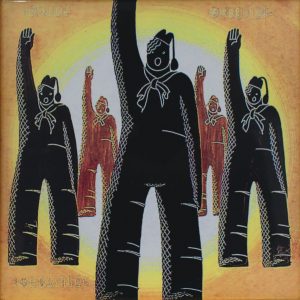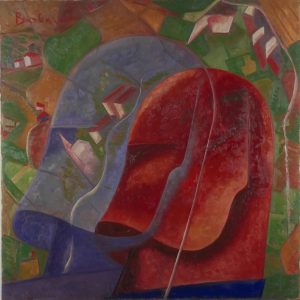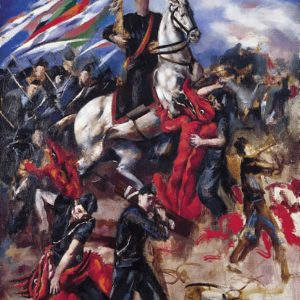The large collection of memorabilia of the Fascist period – first belonged to the journalist and historian Duilio Susmel, to whom the hall is dedicated- mainly focuses on the images of Mussolini and efficiently tells the birth and development of the iconography of the Duce, the built of his personality, the popular and almost devotional declination taken even by everyday objects. By documenting the developments of the relation between art and propaganda in the Fascist Italy, the collection draws attention to a period for a long time obscured, but now widely restudied.
Duilio Susmel (Fiume, 1919- Castagno d’Andrea, Firenze, 1984), who already owned memorabilia of the Fascist period that the Duce directly gave him, after the war begun to search for dispersed relics in order to guard them, recovering from public buildings and private collections, because he considered them an important part of his massive project of reconstruction of Benito Mussolini’s life.
Escaped the censorship and the destruction started after the collapse of the regime (July 25, 1943), when was made an attempt to cancel the burden of a political past with tragic implications, the objects and works of this collection have nowadays a strong historical value, for their rarity and because they efficiently testify a period of the Italian culture and society.
Drawings, paintings, sculptures, coins have been realized between the Twenties and the Forties by artists and craftsmen who consciously contributed to the construction of a myth, someone with staunch commitment, other for opportunity or under command. Seen today, these objects that can seem sometime rhetoric, sometime biting, in some cases highly innovating and experimental and tell us their story and warn with clearness and efficacy, awakening a deep sense of responsibility towards history and memory.
So this “forbidden collection” demands now to approach it with a critic and watchful eye, and never fails to reveal some very important works, such as those by Mario Sironi, Ernesto Thayat, Corrado Cagli, Renato Bertelli.














